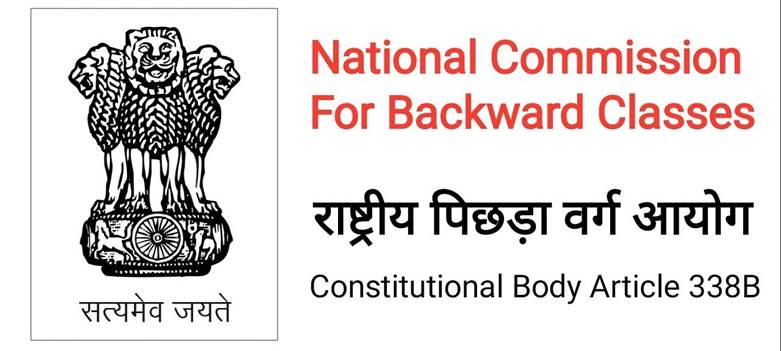Description

Copyright infringement not intended
In News
- Hansraj Gangaram Ahir was appointed as the Chairperson of the National Commission for Backward Classes.
National Commission for Backward Classes
- In 1992, the Supreme Court of India in the Mandal case judgement directed the Union government to create a permanent statutory body to examine the complaints of citizens belonging to backward classes (BC).
- In 1993, the National Commission for Backward Classes (NCBC) was set up.
- In 2018, the 102nd Constitutional Amendment Act granted constitutional status to the Commission by inserting a new Article 338-B in the Indian constitution.
- The Commission consists of a chairperson, a vice-chairperson and 3 other members.
- They are appointed by the President of India by warrant under his hand and seal.
- Their conditions of service and office tenure are also determined by the President.
- The Commission presents an annual report to the President. It can also submit a report as and when it thinks necessary.
- The President places all such reports before the Parliament, along with a memorandum explaining the action taken on the recommendations made by the Commission.
- The President also forwards any report of the Commission related to state government to the state government. The government places it before the state legislature, along with a memorandum explaining the action taken on it.
Responsibilities of the NCBC
- To investigate and monitor all matters relating to the constitutional and other legal safeguards for the socially and educationally backward classes and to evaluate their working.
- To inquire into specific complaints concerning the deprivation of rights and safeguards of the socially and educationally backward classes.
- To participate and advise on the socioeconomic development of the socially and educationally backward classes and to evaluate the progress of their development under the Union or a state.
- To present to the President, annually and at such other times as it may deem fit, reports upon the working of those safeguards.
- To make recommendations as to the measures that should be taken by the Union or a state for the effective implementation of those safeguards and other measures for the protection, welfare and socio-economic development of the socially and educationally backward classes.
- To discharge such other functions concerning the protection, welfare, development and advancement of the socially and educationally backward classes as the President may specify.
.jpg)
Powers of the Commission
- The Commission is vested with the power to regulate its procedure.
- The Commission, while investigating any matter or enquiring into any complaint, has all the powers of a civil court, it can:
- Summon and enforce the attendance of any person from any part of India and examine him on oath.
- Require the discovery and production of any document.
- Receive evidence on affidavits.
- Request any public record from any court or office.
- Issue summons for the examination of witnesses and documents.
- Any other matter which the President may determine.
- The central government and the state governments are required to consult the Commission on all major policy matters affecting the socially and educationally backward classes.
.jpg)
https://pib.gov.in/PressReleasePage.aspx?PRID=1880511
https://t.me/+hJqMV1O0se03Njk9






.jpg)







